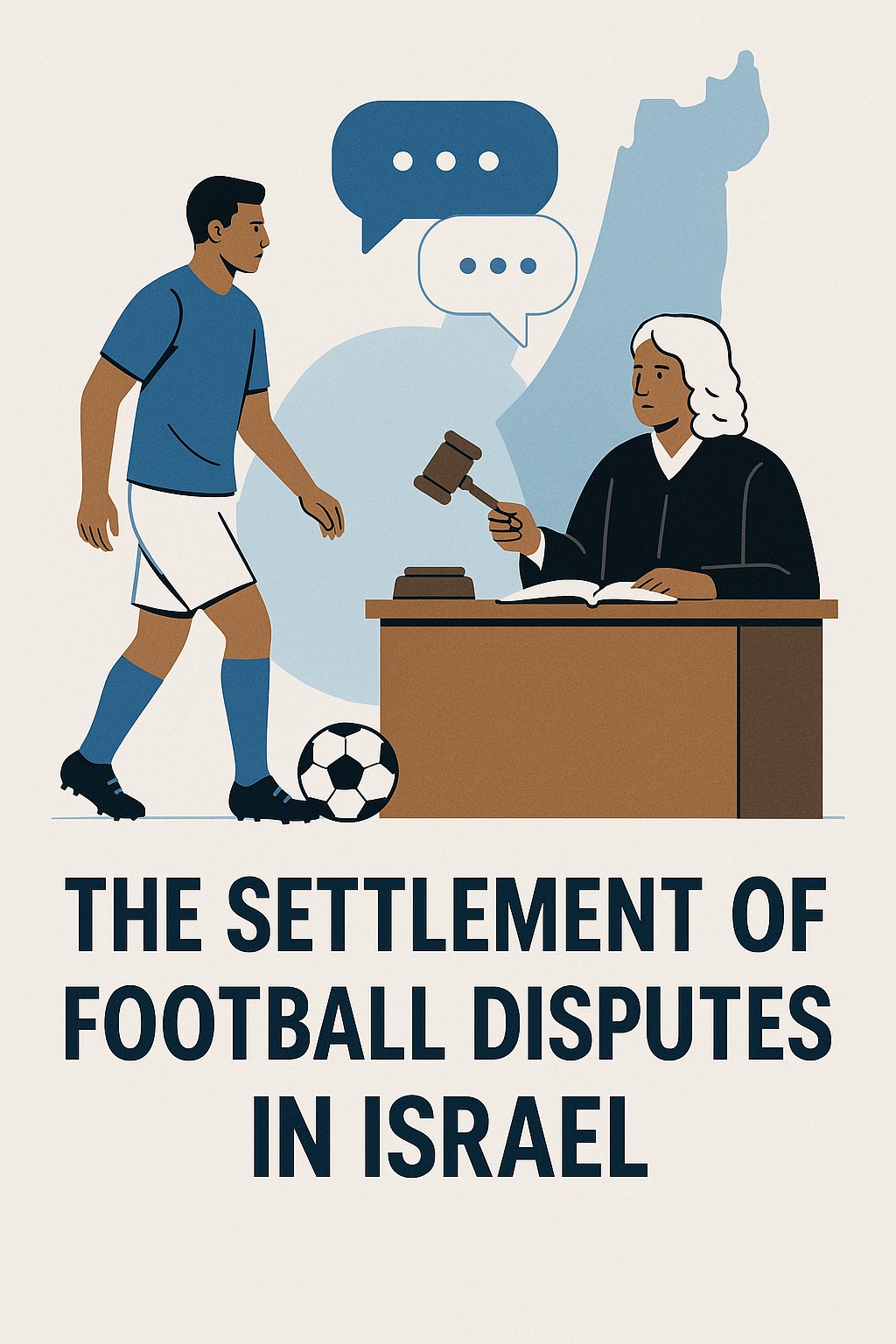THE SETTLEMENT OF FOOTBALL DISPUTES IN ISRAEL

The Israel Football Association (IFA) uses several national and international bodies for settling football disputes in Israel.
For national disputes, the IFA has its own disciplinary committees and tribunals that handle disputes within its member clubs and their players, as well as disputes with other stakeholders. These bodies are governed by the IFA statutes and regulations.
For international disputes, the FIFA Dispute Resolution Chamber (DRC) in Zurich, Switzerland handles cases related to international football player transfers and contractual disputes between those players and their clubs.
Appeals from the DRC can be submitted to the Court of Arbitration for CAS in Lausanne, Switzerland. The CAS maintains a list of Arbitrators, who are specialised in Football Law, which includes one from Tel Aviv, Israel.
Particular mention should be made of the important CAS case of Mujangi Bia v. Maccabi Petah Tikva FC (CAS 2022/A/9080):
In July 2022, the DRC held that the Israel Football Association Arbitration Institution (IFAAI) did not meet the FIFA standards of impartiality, in particular, because it could not be demonstrated that the IFAAI guarantees equal representation of players and clubs. Therefore, under Art. 22(1)(b) of the FIFA Regulations on the Status and Transfer of Players (RSTP), the DRC was competent to hear employment-related disputes of an international dimension if no independent FIFA-compliant national dispute resolution body exists. Since the IFAAI failed to satisfy these requirements, the DRC declared itself competent and awarded the player, Mujangi Bia, nearly 1.3 million New Israeli Shekel (around Sw. Frs.308,425), plus interest.
The Israeli football club, Maccabi Petah Tikva, appealed to the CAS and, in its Award of 28 November 2023, the CAS dismissed the appeal, stressing that the club had not proved that the IFAAI complies with the FIFA requirements for independence, impartiality, and equal representation.
The player was successfully represented in this appeal by our Founder and Managing Partner, Dr Lucien Valloni.
This CAS decision underlines that international employment disputes involving Israeli football clubs fall within the FIFA jurisdiction whenever the national arbitration framework does not guarantee fair proceedings, as required by the FIFA Circular 1010 and Art. 22 RSTP.
As of now, the IFAAI has not been declared impartial or FIFA-compliant in any subsequent DRC or CAS decisions.
One other controversial and politically sensitive issue that should be mentioned concerns the complaints that have been submitted by The Palestinian Football Association (PFA) to FIFA concerning the participation of Israeli settlement football clubs in the West Bank. As of 2017, six IFA member football clubs were based in West Bank settlements and the PFA claims that this violates FIFA statutes, which prohibit clubs affiliated with one national association from playing in the territory of another. Since the West Bank falls under the jurisdiction of the Palestinian Football Association, the PFA maintains that the sanctioning of these clubs by the IFA contravenes FIFA rules. The PFA has also raised concerns about Palestinians being unable to access settlement stadiums, as well as allegations of discrimination and racism within the IFA.
The PFA has also appealed to the CAS regarding the FIFA handling of the settlement teams’ issue, specifically challenging the FIFA decision not to allow a vote on the PFA proposal concerning these clubs.
The matter remains unresolved to date!
We act in football matters in Israel, including national and international disputes, and further information is available from Kim Gamboni, who, amongst other legal qualifications, holds a Master of Laws Degree from Tel Aviv University, Israel, by emailing her at gamboni@valloni.ch.